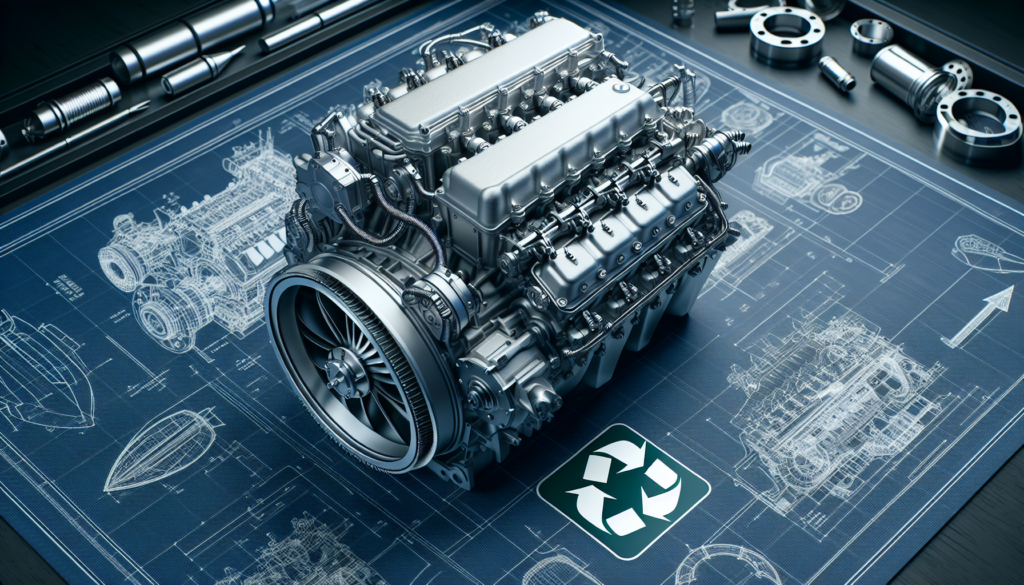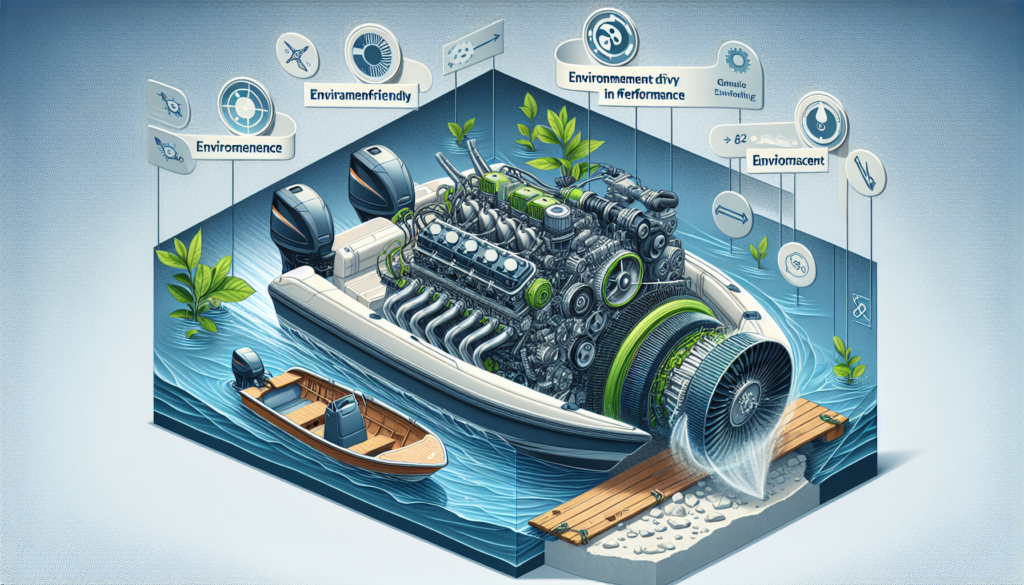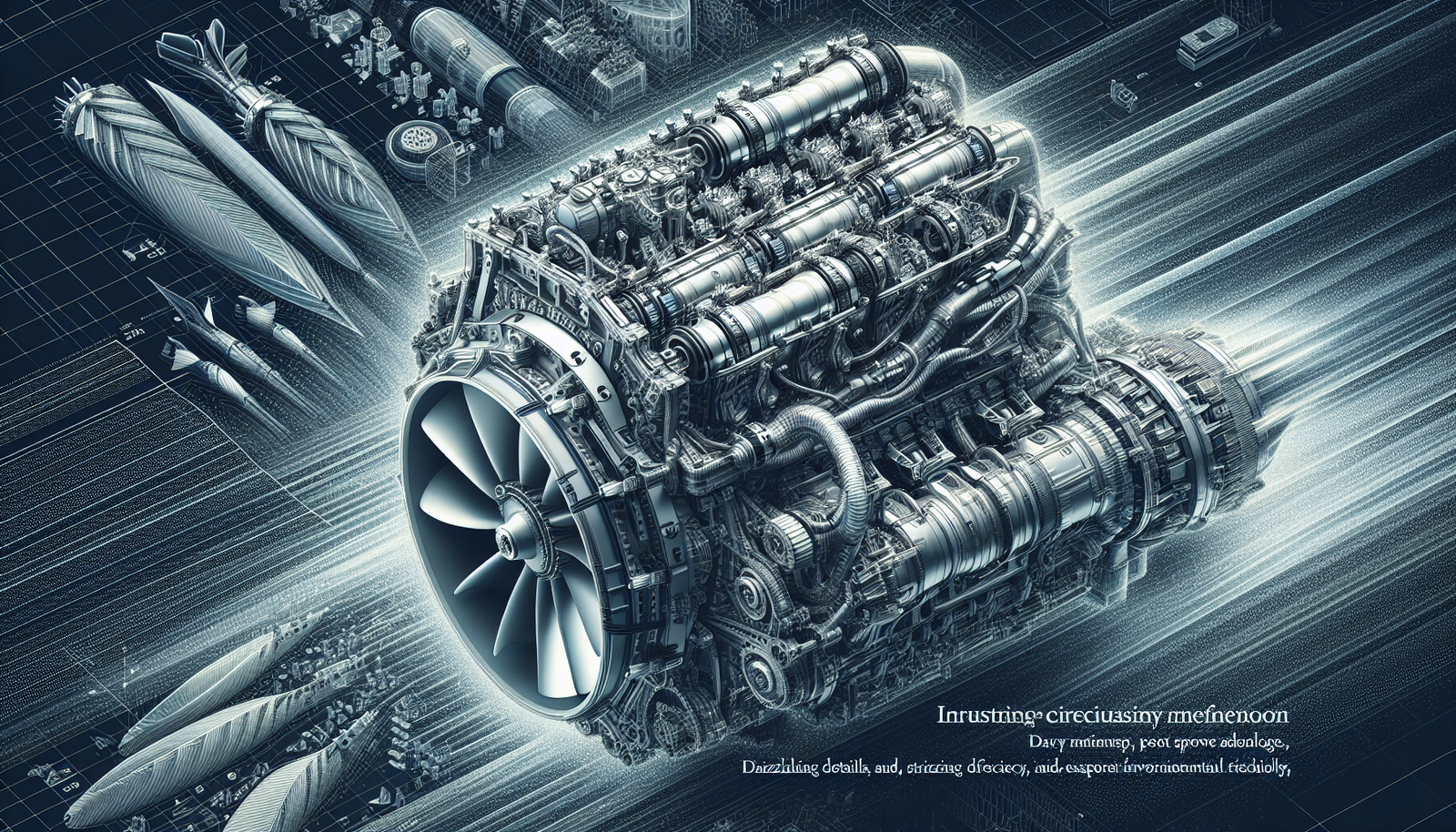Imagine finding yourself out on the open sea, the wind tousling your hair as your boat glides smooth and fast over emerald waves. What powers this remarkable experience isn’t just any old engine, but the very pinnacle of boating technology. In this article, you’ll have a first-row seat to the crème de la crème of this year’s boat engine innovations. Prepare to get up close and personal with game-changing developments, trend-setting advancements, and groundbreaking technology that has rocked the boating world to its very core. It’s all about power, efficiency, and sustainability, brought together in a perfect symphony that will forever enhance your boating adventures.
Electric Propulsion Systems
Electric propulsion systems have seen a surge in popularity in recent years. This transition towards electric propulsion is not just seen in the automobile industry but also in the marine industry. electric boat engines are becoming the go-to choice for many new boaters and seasoned sailors alike.
The rise in popularity
As more and more people are looking for ways to go green, the demand for electric boat engines has increased. This stems from the understanding that you can enjoy the tranquillity and joy that boating brings without harming the environment. Electric engines are quiet, emit no gases, and allow boaters to enjoy a serene, pollution-free journey.
Benefits for the environment
Apart from being quiet, electric boat engines are well known for their lesser impact on the environment. They produce zero emissions and thus reduce both air and water pollution. This clean energy usage makes electric engines a great contribution to preserving the aquatic ecosystem.
How they operate
Electric propulsion systems are not only environmentally-friendly but also incredibly efficient. They operate by converting electrical energy from batteries or generators into mechanical energy. Without the need for fuel combustion, these systems are clean and efficient in their operation.
Hybrid Boating Technologies
Hybrid boating technologies offer a combination of electric and conventional propulsion systems. This marriage of technologies brings together the best of both worlds – the environmental friendliness and efficiency of electric power, and the power and range of conventional propulsion.
Combination of electric and conventional propulsion
With hybrid boating systems, you can switch between electric and diesel power, depending on the situation. At low speeds or when noise and emissions need to be minimal, electric mode can be used. For higher speeds or longer distances, the diesel mode is ideal.
Increased efficiency and range
Hybrid systems provide extended range, allowing you to venture farther. The batteries are charged through the diesel engine or regenerated through sailing, making the system highly efficient. What’s more, the system enables notable fuel savings.
Reducing carbon footprint
As hybrid systems use less fuel and have reduced emissions compared to fully conventional systems, they can significantly lower your carbon footprint. Thus, boaters can enjoy their adventures guilt-free, knowing they are doing their bit for the environment.

Advanced Diesel Tech
Advanced diesel technology is another innovation that is steering the boating industry toward a more energy-efficient and environmentally-friendly future. This tech offers improved fuel combustion, reduced engine noise, and greater power output and fuel efficiency.
Improved fuel combustion process
Advanced diesel technologies have optimized the fuel combustion process and significantly reduced the amount of unburnt fuel during operations. This not only leads to less pollution but also greatly improves engine performance.
Reduced engine noise
The downside of conventional diesel engines is their noise level. But with advanced diesel tech, the noise levels have been significantly reduced, thanks to improved engine design and materials.
Increase in power output and fuel efficiency
Improved fuel combustion leads to a marked increase in power output, enabling higher speeds and greater torques. There is also a significant increase in fuel efficiency, ensuring longer journeys between refuelling.
Digital Throttle and Shift Systems
Digital Throttle and Shift (DTS) systems are replacing the traditional mechanical control systems, enhancing the boating experience by offering ease-of-use and greater control over the boat’s engine.
Ease of use and greater control
With DTS, you no longer need to struggle with stiff control cables. DTS enables smooth and responsive controlling of the boat’s engine, providing you with a more enjoyable and stress-free boating experience.
Increased precision and smoother ride
The responsiveness and precision that DTS offers make for a smoother and more controlled ride. Whether you’re navigating through calm waters or facing choppy waves, DTS has got you covered.
Integration with mobile and smart devices
With the increasing digitization of controls, DTS systems can now be integrated with your mobile and smart devices for even easier operation. This integration provides enhanced convenience and complete control at your fingertips.

Self-Docking Systems
Self-docking systems are becoming increasingly common in modern boats. These advancements in automation greatly increase safety and convenience, transforming your boating experience.
Advancements in automation
Modern self-docking systems use intelligent algorithms and several sensors to safely guide the boat into the dock. This technology allows for more effortless and stress-free docking, a process that has traditionally been one of the most stressful aspects of boating.
Increased safety and convenience
This technology increases safety by eliminating the potential for human error during docking. It also adds an unmatched level of convenience by automating a procedure that typically need a certain level of skill and experience.
How they are transforming boating experience
Self-docking systems are revolutionizing boating by making it more accessible to novices and infrequent boaters. The ease of use and reduced stress associated with docking are transforming the overall boating experience.
Fuel Cell Technology
Fuel cell technology is a promising innovation in the boating industry. It offers the potential for zero-emission boating, though it does come with its challenges and future prospects.
How it works
Fuel cells work by converting chemical energy stored in hydrogen fuel directly into electricity. This direct conversion leaves no room for pollution as the only by-products are pure water and heat.
Potential for zero-emission boating
Fuel cell technology can potentially revolutionize the boating industry by creating a clean and sustainable source of propulsion. This means boaters can enjoy their time on the water without worrying about harmful emissions or noise pollution.
Challenges and future prospects
Despite the clear benefits, fuel cell technology still faces significant challenges in terms of cost, durability, and hydrogen storage. However, efforts are ongoing to overcome these issues, and the future for this technology in boating holds great promise.

Integrated Boat Control Systems
Integrated boat control systems, which combine navigation and engine control into one simple system, are becoming increasingly prevalent in the modern boating industry.
Combining navigation and engine control
These systems bring together functions such as autopilot, GPS navigation, steering, and throttling into a single, user-friendly interface. This not only simplifies the control of the boat, but also significantly contributes to safer voyages.
Improved user interface
Most integrated systems today have easy-to-use touchscreen displays and sophisticated software. These user-friendly interfaces make it easier for both experienced and novice boaters to operate the systems and understand the various functions.
Role in making boating easier and safer
Integrated systems play a key role in making boating more accessible and safer. By combining multiple functions into one system, they reduce complexity for the user, thus making boating easier and more enjoyable.
Advanced Outboard Engines
Improvements in outboard motors have led to the development of lighter, more energy-efficient, and durable engines. Enhancements in functionality and design have reshaped the boating experience, making it more convenient and enjoyable than ever before.
Lighter and more energy efficient engines
The best outboard engines of today are lighter and more energy-efficient than their predecessors. They deliver optimal performance, consume less fuel and require lesser maintenance, simplifying ownership.
More reliable and durable
Advancements in technologies have not only made engines more efficient but also more reliable and durable. You can expect fewer breakdowns and longer lifetimes from modern outboard engines.
Advancements in functionality and design
From features like power tilt and trim to automatic start-stop systems, the functionality and design of outboard engines have come a long way. More refined designs contribute to better performance, making boating a truly enjoyable experience.

AI-Driven Maintenance Systems
Artificial Intelligence (AI) and Machine Learning (ML) have found their application in boat engine technology as well. AI-driven maintenance systems are becoming a norm, leading to an increase in engine reliability and lifespan.
Predictive maintenance using AI and ML
AI and ML algorithms use real-time data to predict potential issues and assist preventive maintenance efforts. By identifying potential problems before they become serious, these technologies help extend engine life and minimize maintenance costs.
Increased reliability and lifespan of engines
The use of AI and ML in maintenance significantly increases the reliability and lifespan of engines. Boat owners can enjoy peace of mind knowing their engines are constantly monitored for potential issues and are well maintained.
Better fuel and cost efficiency
AI-driven maintenance systems can result in better fuel efficiency as they ensure optimal engine operation. Over the long run, they help save costs arising from extensive repairs or engine replacements.
Biodegradable Lubricants
Biodegradable lubricants are gradually replacing conventional petroleum-based oils. These eco-friendly products result in significantly reduced environmental pollution while maintaining similar or even better performance than traditional lubricants.
Benefits for the environment
Biodegradable lubricants break down into harmless substances after use, minimizing the risk of pollution and damage to the aquatic ecosystem. This sustainable choice considerably lessens the environmental impact of boating.
Performance compared to conventional lubricants
Despite being environmentally friendly, biodegradable lubricants do not compromise on performance. They offer excellent lubrication and anti-friction properties, often outshining conventional petroleum-based oils.
Industrial adoption and challenges
While the environmental benefits are clear, the adoption of biodegradable lubricants in the marine industry has been slow. They come with challenges such as higher costs and potential compatibility issues with certain materials. However, with ongoing research and growing environmental consciousness, their use is expected to increase.
In conclusion, innovations in boat engine technology are making boating more efficient, environmentally friendly, and enjoyable than ever before. From electric propulsion systems to AI-driven maintenance systems, these innovations are truly revolutionizing the boating industry.

